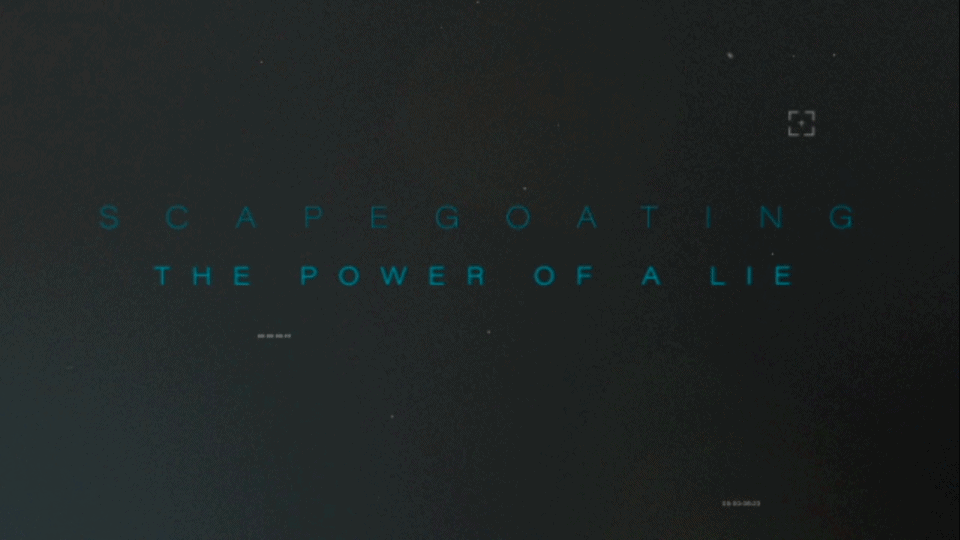Blog series “How to Counter the Populist Narrative of Scapegoating?” is part of the project “Improving Communication on Human Rights”, organized by ELF and supported by the Friedrich Naumann Foundation for Freedom, with the aim of creating a safer work environment for human rights defenders and increasing the visibility of their work.
GREECE
Nowadays, populism is on the rise again. During the last century, the enemies of the liberal order were communist or fascist states, but now illiberal populist parties and movements pose a threat to democratically established norms and values of liberalism (Sinav 2019). Populism’s main goal is to create an image of “true” people, of “we” against “they”, where “they” are the corrupt elites (Sinav 2019; Argandoña 2017). Moreover, they construct a political narrative of scapegoating, meaning the targeting of particular groups of people for the imperfections and irregularities of the society’s well-being.
In the case of Greece, populism varies, since both right-wing and left-wing movements and parties are keen to populist discourse in the political landscape (Ifantis and Triantaphyllou 2018). In this text, the populist narrative of scapegoating will be examined in the case of extreme right-wing parties, where the neo-Nazi party, named Golden Dawn, adopted an anti-migratory agenda and discourse, which contributed to the fact that the party received over 400.000 votes (approximately 7% of the voters) in the Greek parliamentary elections of 2012 (Dalakoglou 2013). Starting as a movement in 1983, the anti-migratory stance was adopted initially during the 1990s, when migration and criminality became main topics of its narrative and existence and violent attacks against immigrants and leftists became a common phenomenon (Kyriazi 2016). The party adheres to a form of ultra-nationalism, the pure “Greekness” and defines nationality in terms of blood, race and ancestry, emphasizing the boundaries of common ancestry and excluding others because of an alleged racial inferiority (Kyriazi 2016).
Golden Dawn’s positions on immigration vary. The most important one that depicts its populist narrative of scapegoating is that “illegal immigrant intruders constitute irregular armies that disintegrate social structure and alienate our national identity” (Golden Dawn as cited in Kyriazi 2016). According to Golden Dawn, “there are no legal immigrants in Greece” and its members have extensively used the adjective ‘illegal’ to describe migrants, claiming a correlation between criminality and immigration (Panagiotaros as cited in Kyriazi, 2016). Moreover, it should be noted that the party, before the elections of 2012, campaigned under an anti-immigrant stance, speaking of “cleaning-up operations” at the centre of Athens, where there have been numerous assaults against immigrants (Faiola 2012).
Immigrants have been also characterised from the Greek MP Katerina Zaroulia with the qualifier “sub-humans” and that they have invaded Greece carrying diseases in one of her parliamentary speeches (Zaroulia, as cited in Kyriazi 2016). The term “sub-humans” was part of the Nazi ideology in the past (Kyriazi 2016). Claiming the concept of disease, she invokes the idea of biological threat deriving from the immigrants and refugees, who have entered Greece illegally, being culturally inferior groups that challenged the unique Greek national identity and the employment of Greek citizens (Karamanidou 2016; Kyriazi 2016). The populist narrative of scapegoating on behalf of Golden Dawn focused on the immigrants and refugees, who have been the main target of their discourse for the purported undermining of the “Greekness”, the pure Greek national identity and ethnic homogeneity.
Taking into account all the previously mentioned, the full realization of human rights and liberal values constitute the response to populist, authoritarian, illiberal regimes and their narrative of scapegoating. The protection of civil rights is necessary to ensure the establishment of an open-minded and multicultural society, where economic freedom, respect for human dignity and the inclusion of the youth in the decision-making process are key factors towards the prosperity of the international society. A common agenda and strategy from a wide spectre of civil society organisations safeguarding human rights against populist incentives is also necessary to bridge differences among liberals in the race against populism (Mudde 2018).
Furthermore, the pursuit for an effective migration policy of redistribution of asylum seekers from Greece and other highly affected countries from the refugee crisis on behalf of the EU is necessary to counter the populist narrative in those societies (Altemeyer-Bartscher et al. 2016). The key in that initiative is to overcome the national resistance of particular countries and governments in the EU that are opposed to any resettlement of asylum seekers in their territories, which is illiberal and opposite to the EU’s fundamental values. Moreover, political reforms and better communication of liberal ideas are necessary to restore the credibility and capacity of liberal and democratic institutions in order to perform according to the citizen’s needs, so that populist voices do not find fertile ground to build their ill-narrative and target special ethnic groups for the irregularities of a society (Galston 2018).
In conclusion, the influence of the populist narrative of scapegoating, and generally of populism, benefits from the incompleteness of life and the spread of poverty in democratic societies (Galston 2018). In the case of Greece, Golden Dawn emerged from the grave economic crisis and justified its presence through its anti-migratory narrative that appealed to a significant share of Greek voters, presenting migrants as the scapegoat for the problems of the Greek society. Despite its influence, not only did it not reach the threshold to enter the Greek parliament in the elections of 2019, mainly because of its one-dimensional agenda, but also was recently condemned as a criminal organization by a Greek court for the lethal attack to a Greek left-wing activist (Greek court rules Golden Dawn party criminal organization 2020, Tsagkroni 2020). The conservation and promotion of civil rights worldwide should be viewed as the liberal counter-model to illiberal movements that try to disrupt the international democratic order.
References
Altemeyer-Bartscher, M, Holtemöller, O, Lindner, A, Schmalzbauer, A & Zeddies G 2016, ‘On the Distribution of Refugees in the EU’, Intereconomics, vol. 51, no. 4, pp.220-228.
Argandoña, A 2017, Why Populism Is Rising And How To Combat It, viewed 6 November 2020
Dalakoglou, D 2013, ‘From the Bottom of the Aegean Sea to Golden Dawn: Security, Xenophobia, and the Politics of Hate in Greece’, Studies in Ethnicity and Nationalism, vol.13, no. 3, pp. 514-522
Faiola, A 2012, Anti-immigrant Golden Dawn rises in Greece, viewed 6 November 2020
Galston, W.A, ‘The Populist Challenge to Liberal Democracy’, Journal of Democracy, vol. 29, no. 2, pp. 5-19.
Greek court rules Golden Dawn party criminal organization 2020, viewed 7 November 2020
Ifantis, K & Triantaphyllou 2018, ‘Introduction: A Note on Populism in Crisis-ridden Greece’, Uluslararası İlişkiler Dergisi, vol. 15, no. 58, pp. 3-8.
Karamanidou, L 2016, ‘Violence against migrants in Greece: beyond the Golden Dawn’, Ethnic and Racial Studies
Kyriazi, A 2016, ‘Ultranationalist discourses of exclusion: a comparison between the Hungarian Jobbik and the Greek Golden Dawn’, Journal of Ethnic and Migration Studies,
Mudde, C 2018, How can liberals defeat populism? Here are four ideas, viewed 5 November 2020
Rabinowitz, G 2012, Greece’s Jewish community warns of return to fascism, viewed 5 November 2020
Sinav, G 2019, ‘A Liberal Response to the Populist Challenge: Quo Vadis Populism? An Assessment’, Ralf Dahrendorf Roundtables, Atölye – Bomontiada, Istanbul, 14 June
Tsagkroni, V 2020, The dusk after the dawn: fall of a Greek Neo-Nazi party, viewed 6 November 2020,
Nikolaos Zerzelidis is the Secretary of Young Liberals Greece with a background in International and European affairs and Nationalism. Currently, he is doing a Master’s Programme in Human Rights and Migration Studies.

